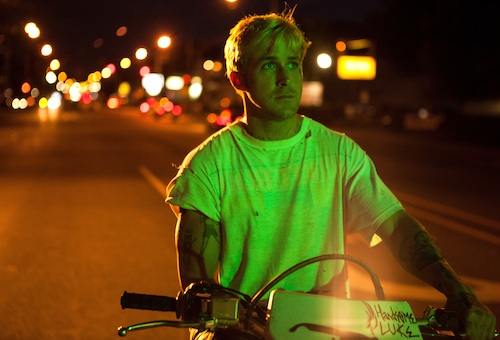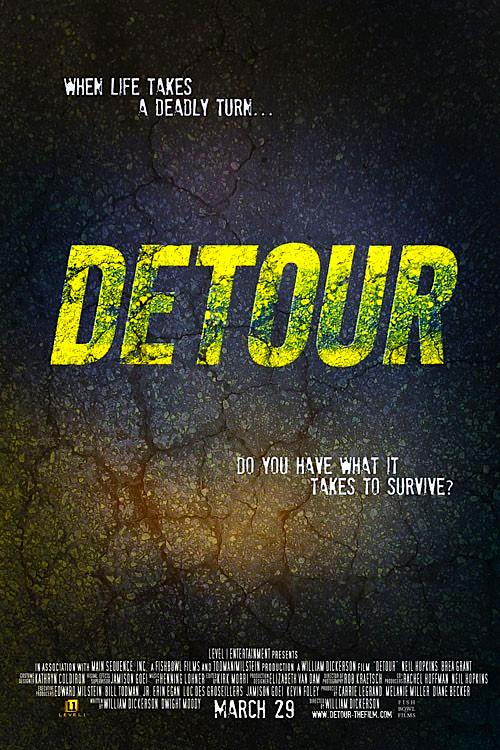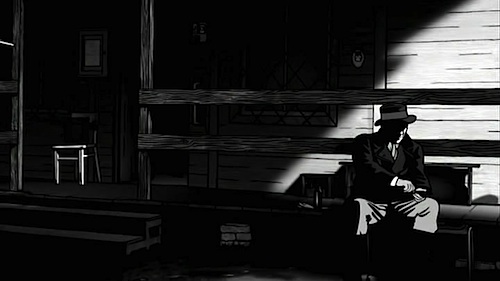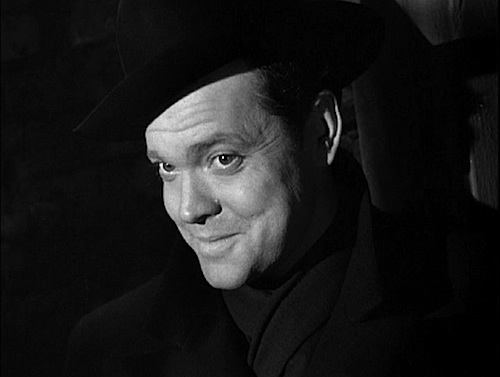By Joe Bendel. If you shoot a movie in Schenectady, you surely qualify for those New York State tax credits. However, if you just move there looking for regular work, you are likely to get frustrated, especially if your primary skill is motorcycle stunt riding. As a result, drifter Luke Glanton turns to crime, setting in motion a wave of bad karma that will outlive him in Derek Cianfrance’s lumbering family saga, The Place Beyond the Pines, which opens today in New York.
Once a year, Glanton blows through town with the carny, performing his steel cage act. Ryan Gosling obvious spent hours in the gym and having a barrelful of temporary tattoos applied so we will buy him as a steely bad cat. Of course, it fails, putting the film in a credibility hole right from the start. Still, we can believe he is rather thick-headed. That is important, because Glanton will make some very bad decisions.
Romina, his hook-up from the previous year, turns up after his show – but she is acting weird, giving him the Heisman. Dropping by her place to take another shot, Glanton learns she had his baby, but is now engaged to a responsible adult. Much to her surprise, he quits the carnival, intending to settle down and be a father in Schenectady. The only straight gig he finds is low paying mechanic work with the grizzled Robin Van Der Zee. His drinking buddy-boss has other ideas, though.
The idea to start holding up banks involves Glanton’s skill as a driver and Van Der Zee’s cargo truck waiting to whisk him away. Frankly, Beyond’s heist scenes are surprisingly well staged. Regrettably, from this point on, Cianfrance vividly illustrates the principle of diminishing returns with the subsequent story arcs. In the second act, we follow law school grad-police officer Avery Cross, whose path fatefully crossed that of Glanton.

Guilt-ridden and gun-shy, Cross finds his career at a standstill, despite his questionable hero status. He is also uncomfortable with the Schenectady force’s systemic corruption. This is fairly standard stuff, somewhat enlivened by Ray Liotta’s dependable crooked copper turn. However, Bradley Cooper never feels right as Cross, looking too old and reserved for a rookie patrolman and too young and bland for a seasoned Attorney General candidate in the third act.
Indeed, the final segment is largely a disaster, aside from the intriguing reappearance of Ben Mendelsohn’s Van Der Zee. Cianfrance drives his “sins of the father” theme into ground when Cross and Glanton’s sons become high school frienemies. Dane DeHaan is cringingly sensitive and damaged as the son Glanton never knew, while Emory Cohen’s inarticulate AJ Cross would be more convincing as the spawn of Cro-Magnons rather than a reasonably educated couple like the Crosses. Forget boarding school, he ought to be kept chained in the attic.
Hardly a subtle stylist, Cianfrance beats on the paternal issue like a rented mule. A talented editor could probably rescue a respectable short from the Glanton section, but with its taxing one hundred and forty minute running time, Beyond is simply far too long and overly melodramatic. Not recommended (unless viewers are intrigued to see the Schenectady experience on the big screen), The Place Beyond the Pines opens today (3/29) in New York at the Landmark Sunshine and Loews Lincoln Square.
LFM GRADE: D
Posted on March 29th, 2013 at 9:01am.




